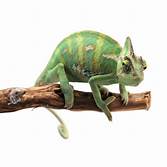Can You Keep a Sloth as a Pet?
Sloths are adorable creatures that have captured the hearts of many people with their slow movements and endearing appearance. However, keeping a sloth as a pet is not as simple as it may seem. There are many factors to consider before making this decision, including the sloth's unique needs, the legality of owning one in your area, and the potential risks involved.

Is It Legal to Keep a Sloth as a Pet?
The legality of owning a sloth as a pet varies from country to country, and even from state to state within the United States. In some places, it is illegal to keep any kind of wild animal as a pet, while in others, it is legal to own certain types of animals, including sloths. It is important to check the laws in your area before you consider getting a sloth as a pet.
What Are the Special Needs of a Sloth?
Sloths are not like other pets. They have special needs that must be met in order for them to thrive. These needs include:
- A warm, humid environment. Sloths are native to the rainforests of Central and South America, where the temperature and humidity are consistently high. In a pet setting, you will need to create a similar environment for your sloth, which can be difficult and expensive.
- A large enclosure. Sloths need a lot of space to move around and climb. The enclosure should be at least 10 feet tall and 10 feet wide, and it should have plenty of branches and ropes for the sloth to climb on.
- A specialized diet. Sloths are herbivores that eat a diet of leaves, fruits, and vegetables. The diet must be carefully formulated to meet the sloth's nutritional needs.
- Regular veterinary care. Sloths are prone to a number of health problems, including respiratory infections, dental problems, and digestive problems. They need regular veterinary care to stay healthy.
What Are the Potential Risks of Keeping a Sloth as a Pet?
In addition to the legal and ethical considerations, there are also a number of potential risks associated with keeping a sloth as a pet. These risks include:
- The sloth may become stressed or aggressive. Sloths are not naturally social animals, and they can become stressed or aggressive if they are not given enough space or if they are forced to interact with people or other animals.
- The sloth may become ill. Sloths are prone to a number of health problems, and they may require expensive veterinary care.
- The sloth may escape. Sloths are skilled climbers, and they can easily escape from their enclosure if it is not properly secured.
- The sloth may hurt you or someone else. Sloths have sharp claws and teeth, and they can inflict serious injuries if they feel threatened.
Conclusion
Sloths are fascinating and unique creatures, but they are not suitable pets for most people. They have special needs that are difficult to meet, and they can pose a risk to their owners. If you are considering getting a sloth as a pet, it is important to do your research and to carefully weigh the risks and benefits involved.
Declaration: All article resources on this website, unless otherwise specified or labeled, are collected from online resources. If the content on this website infringes on the legitimate rights and interests of the original author, you can contact this website to delete it.






